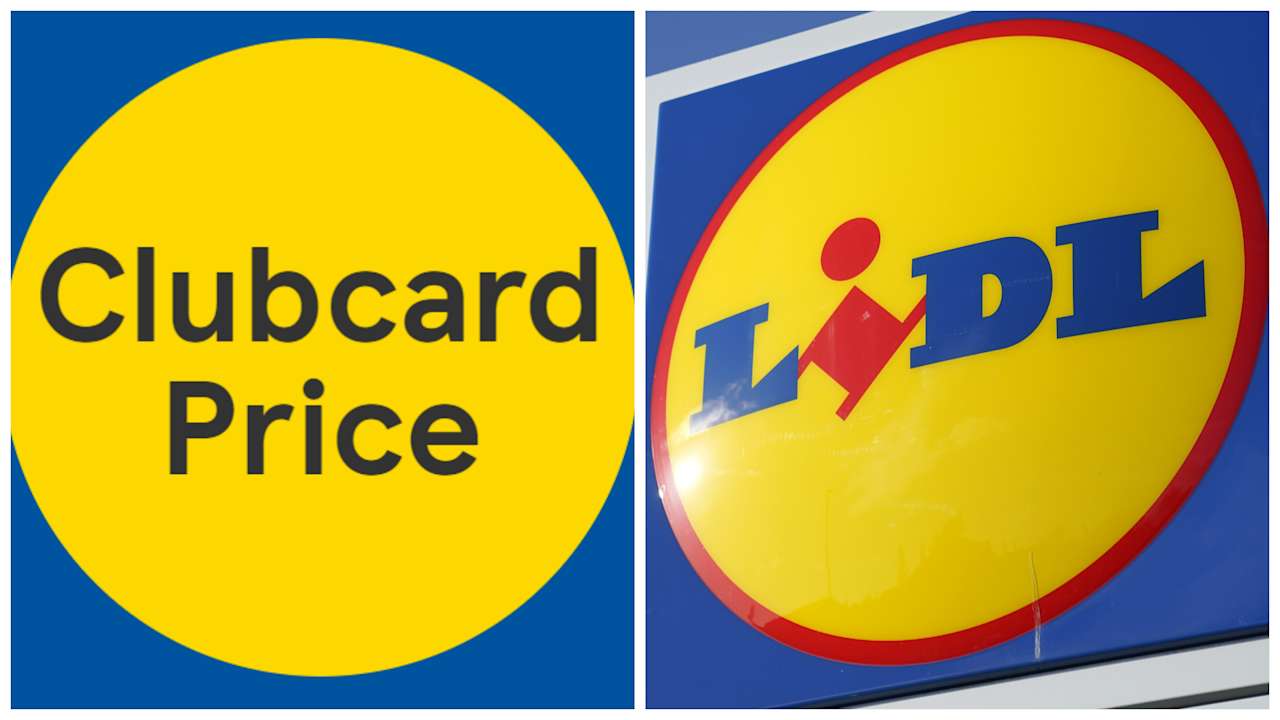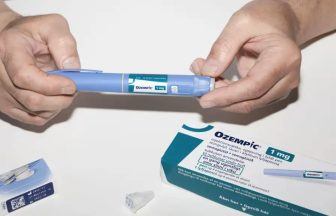Lidl has won a High Court battle against Tesco over the rival supermarket’s use of a yellow circle logo.
The budget German supermarket took issue with Tesco’s yellow circle on blue background Clubcard deal branding, as it is similar to its branding.
A judge said on Wednesday that she sided with Lidl on claims of trademark infringement, passing off, and copyright infringement.
Mrs Justice Joanna Smith oversaw a hearing at the High Court in London earlier this year.

A Lidl spokesman said after the ruling: “We are pleased that the court has agreed with us.”
Tesco will appeal the decision.
A spokeswoman for the supermarket said: “We are surprised and disappointed by the decision today in relation to the claim brought by Lidl against our Clubcard Prices logo.”
Mrs Justice Smith said Lidl had made allegations of infringement of registered trademark rights in “Lidl’s logo devices,” passing off, and infringement of copyright.
She said Lidl’s complaint was about what it described as the “use by Tesco of an identifier for its Clubcard Prices promotion”.
“Essentially, Lidl says that Tesco is seeking deliberately to ride on the coat tails of Lidl’s reputation as a ‘discounter’ supermarket known for the provision of value,” the judge explained.
“It is Lidl’s case that the Clubcard Prices promotion was adopted by Tesco as part of a campaign that was designed to improve Tesco’s ability to compete with discounter supermarkets such as Lidl.”
She added: “Lidl contends that the deception of Tesco’s customers is not accidental.”

Tesco argued that in relation to the “Clubcard Prices initiative”, it used the “sign” in “various guises, always with text overlaid” and “always as a signifier of its Clubcard Prices promotion”.
Mrs Justice Smith said she had found for Lidl on claims of trademark infringement, passing off and copyright infringement.
Tesco had counterclaimed and the judge said she had made a finding in favour of Tesco on its counterclaim.
The judge said: “Tesco pursue a counterclaim alleging that some of the Lidl trademarks are liable to be declared invalid on the grounds that they were registered in bad faith, and/or that they should be revoked for non-use and/or that they have no distinctive character.”
She said she had found in favour of Tesco on its “counterclaim of bad faith”.
The judge said there had been “no deliberate intention positively to evoke Lidl”.
But she said that did not mean the design “was not copied with the focus being on the message that a blue and yellow background would convey for the Clubcard campaign”.
She said Lidl had relied upon its “trademark rights” in relation to a logo which included the word “Lidl” and a logo without that word.
Tesco had counterclaimed and alleged that “some of the Lidl trademarks” were liable to be declared invalid on the grounds that they were “registered in bad faith”, or “should be revoked for non-use and/or that they have no distinctive character”.
The judge found that in 1995 a “wordless mark” had been registered “in order to use it as a weapon to secure a wider legal monopoly than it was entitled to, with no genuine intention to use it”.
She said that was “sufficient to amount to bad faith”.
A Lidl spokesman said: “We asked Tesco to change their Clubcard logo, but they refused, making it necessary to bring this case.
“Having seen the evidence, the court has now ruled that Tesco’s Clubcard logo was copied from Lidl’s logo, and it infringes Lidl’s trademark rights and copyright.”
A Tesco spokeswoman added: “This claim brought by Lidl was just about the colour and shape of the Clubcard Prices logo. The judge’s ruling concluded that there was no deliberate intent on Tesco’s part to copy Lidl’s trademark.
“It has no impact on our Clubcard Prices scheme, which we will continue to run in exactly the same way.”
Follow STV News on WhatsApp
Scan the QR code on your mobile device for all the latest news from around the country





























